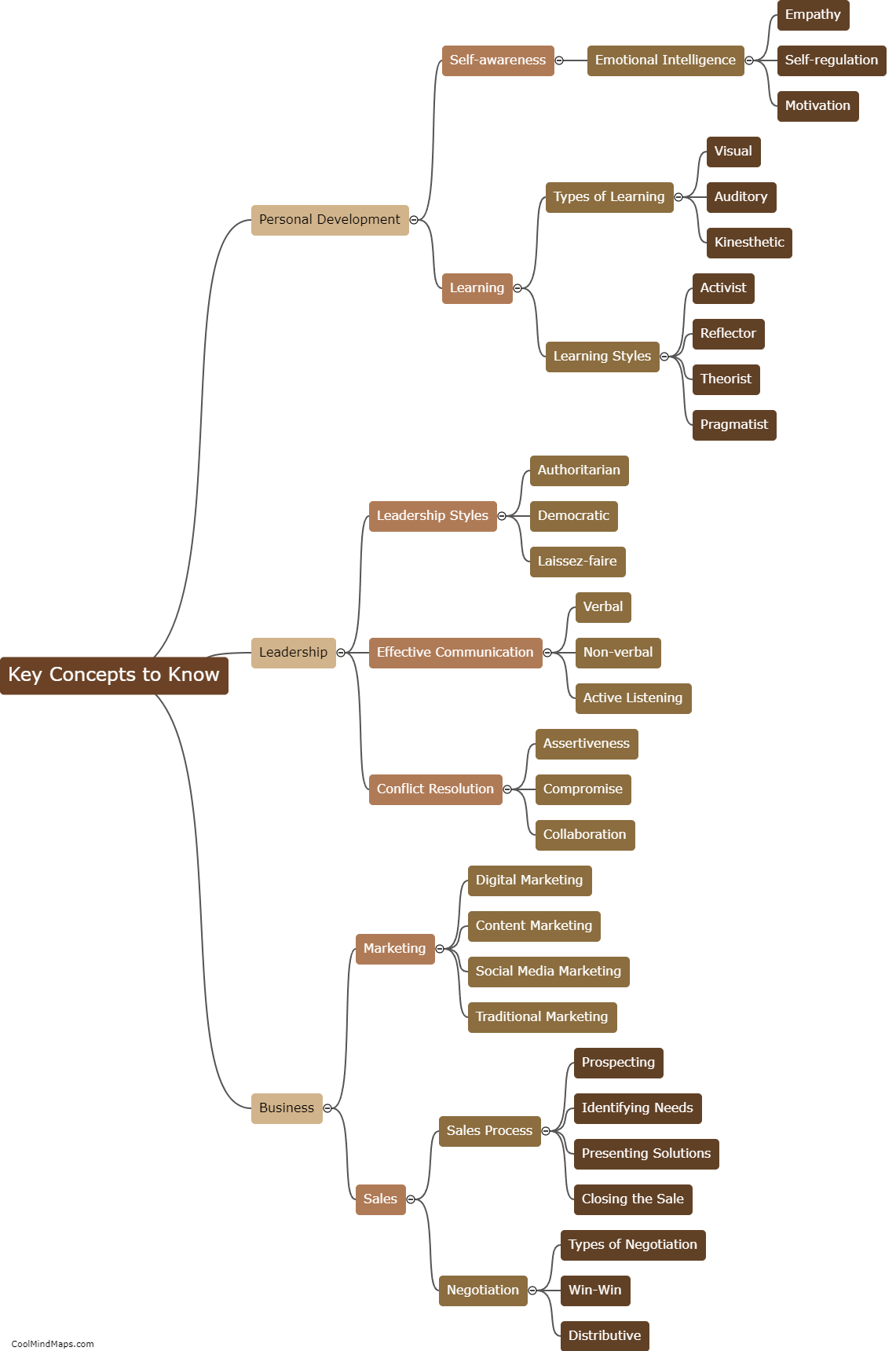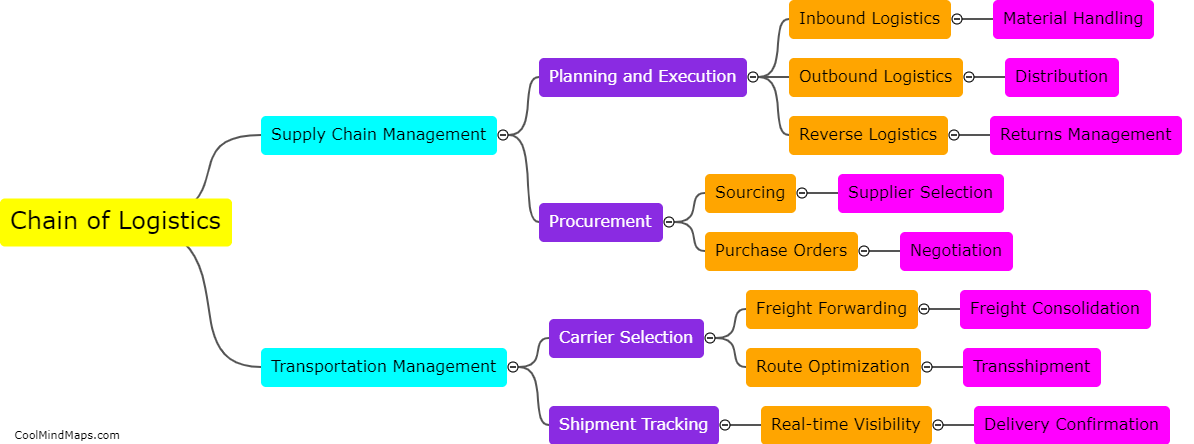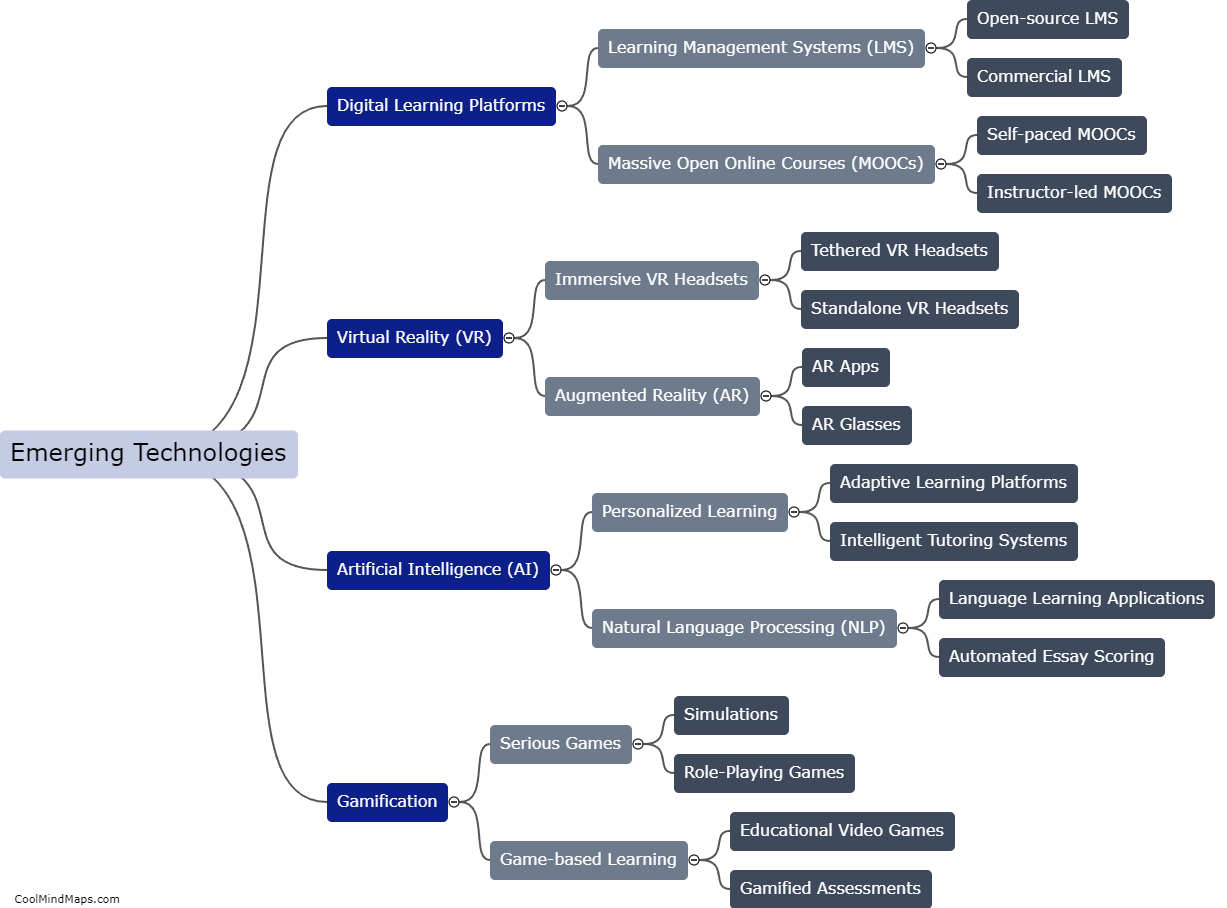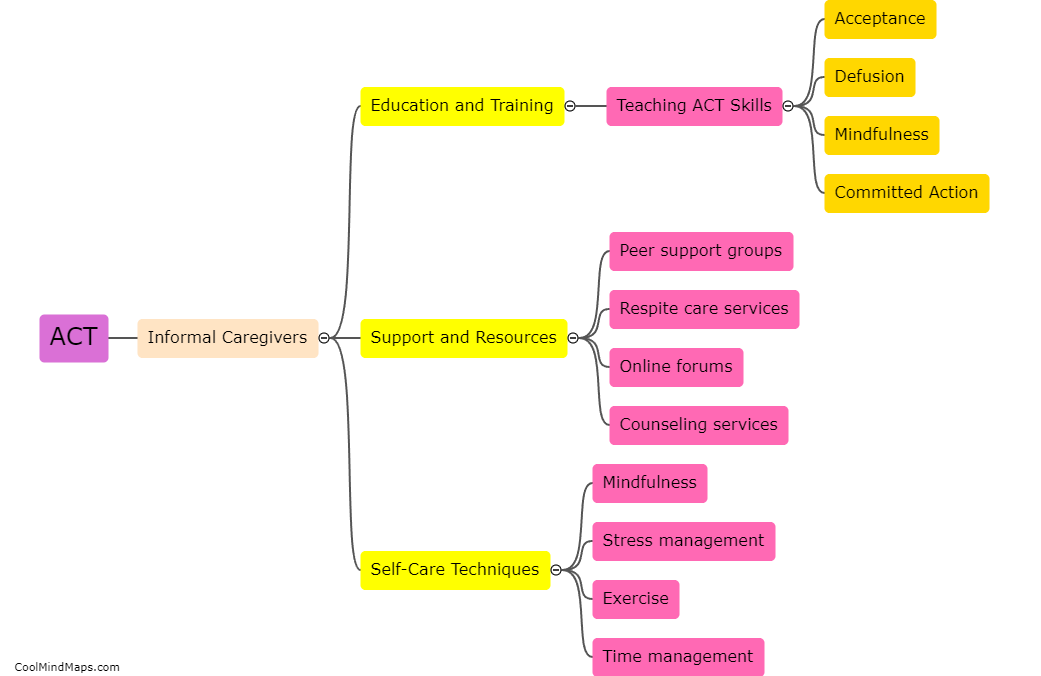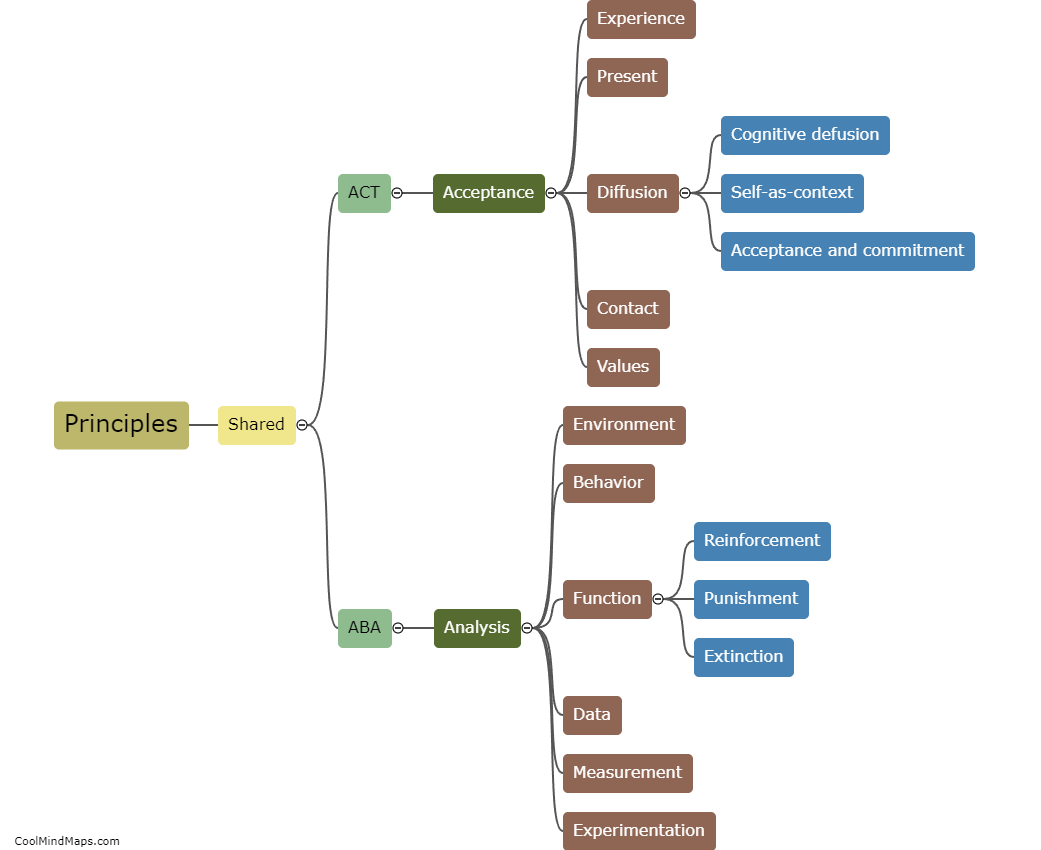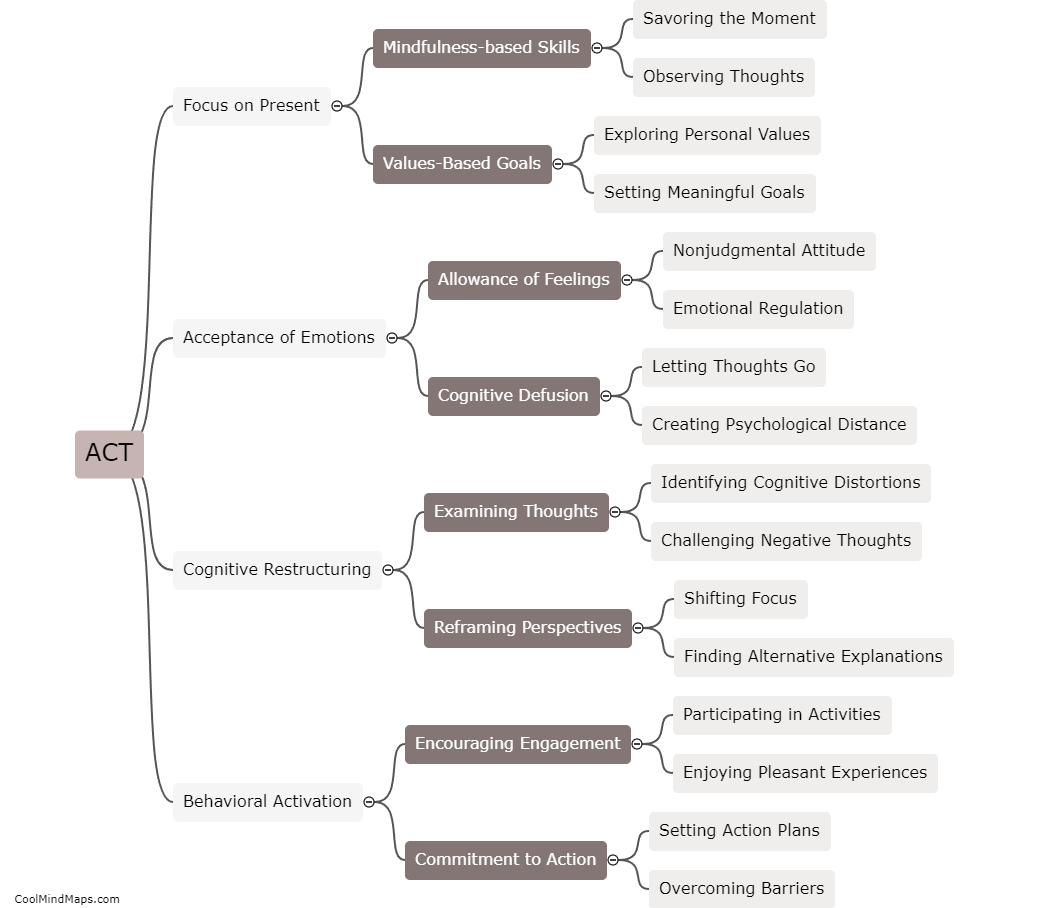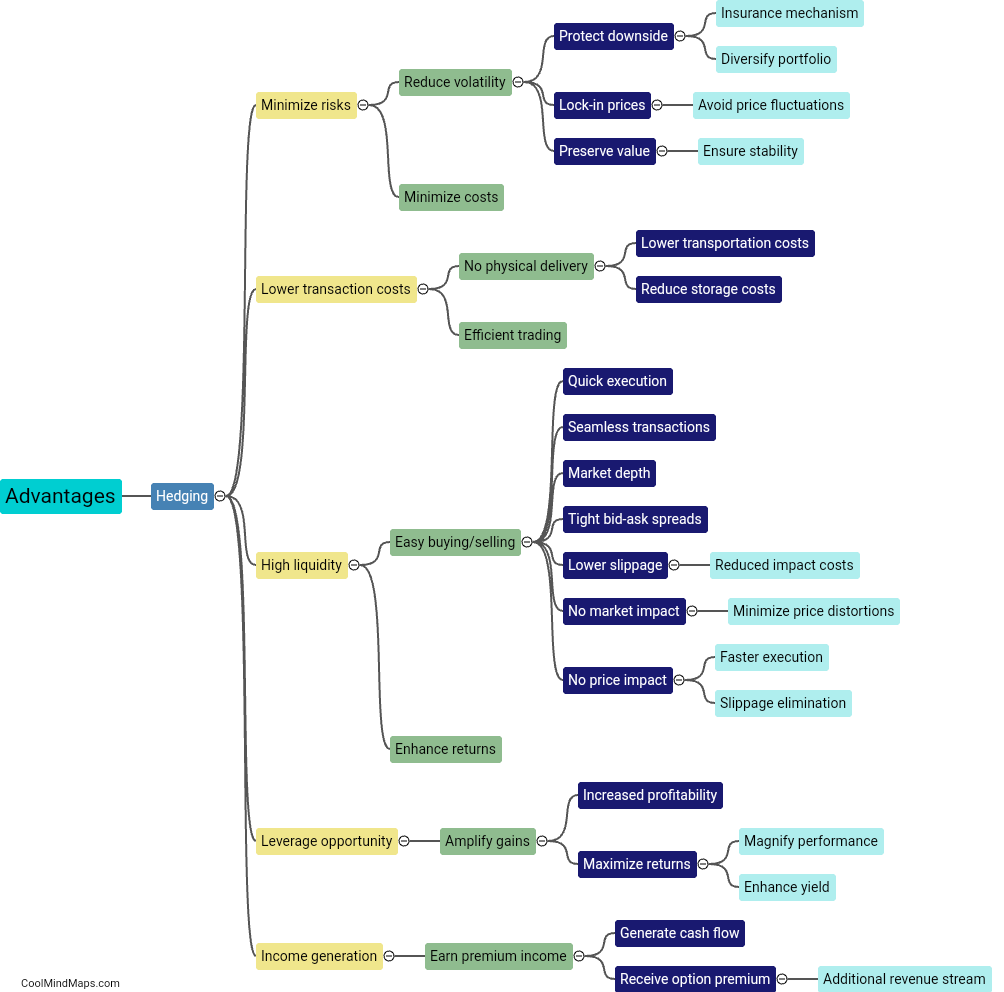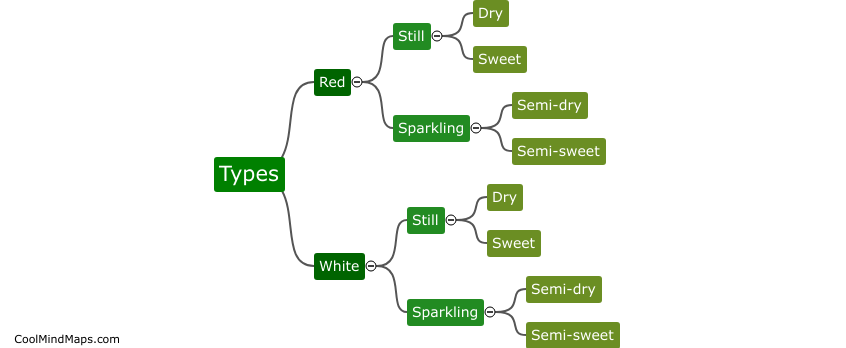What are the benefits of using ACT with informal caregivers?
Using Acceptance and Commitment Therapy (ACT) with informal caregivers can have numerous benefits. ACT is a therapeutic approach that aims to help individuals accept their thoughts and emotions without judgment while committing to actions aligned with their values. For informal caregivers, who often experience high levels of stress, burnout, and emotional burden, ACT can provide a range of advantages. It can help caregivers to cultivate psychological flexibility, which allows them to respond to the challenges of caregiving with resilience and adaptability. By accepting difficult emotions and thoughts, caregivers can become less consumed by negative feelings, leading to improved mental well-being. ACT also helps caregivers align their actions with their personal values, fostering a sense of purpose and meaning in their caregiving role. Overall, using ACT with informal caregivers can enhance their emotional well-being, reduce stress, and empower them to provide better care for their loved ones.
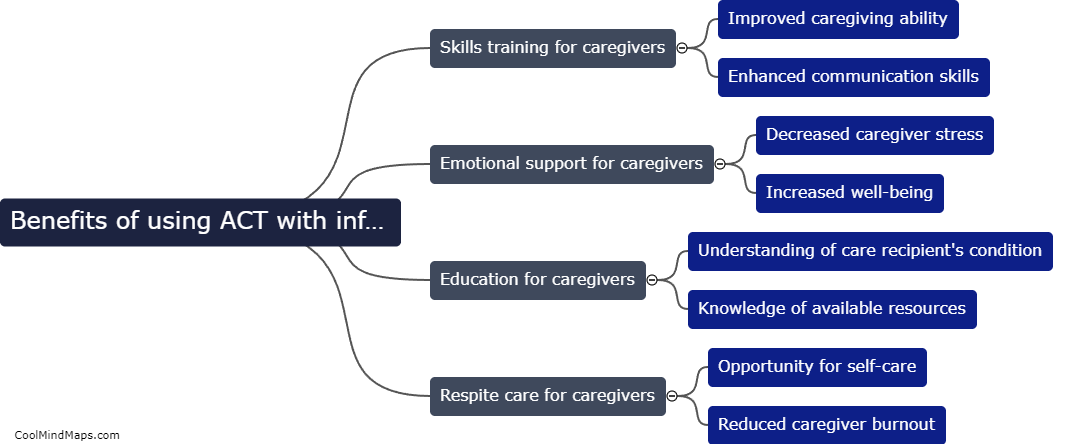
This mind map was published on 22 January 2024 and has been viewed 96 times.

